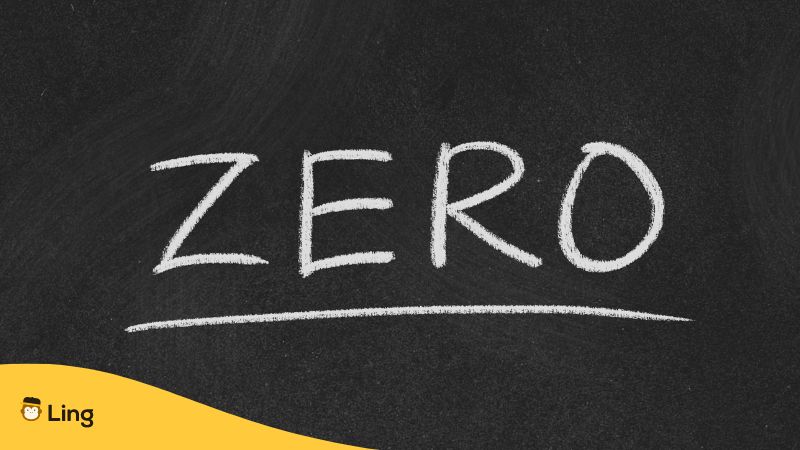The journey of language learning is akin to an expedition through unexplored terrains, brimming with discoveries and intriguing twists. Among these captivating finds are “loan words”, which are borrowed from foreign languages. Today, our focus is on the Nepali language, a member of the Indo-European language family, and its collection of fascinating loan words in Nepali that will undoubtedly pique your curiosity.
The land-enclosed nation of Nepal, nestled between the powerhouses of Northern and Central India and China, boasts a rich linguistic tapestry. Nepal’s official language, Nepali, also known as Khas Kura, is an Indo-Aryan language spoken by the majority of the people living there. It has been significantly influenced by various cultures, including Sanskrit, Persian, Hindi, and English, and has borrowed a substantial number of loanwords from these languages.
While this language may seem a bit tricky, one of the best ways to easily master it is by getting yourself more educated about the common loan words. You see, loanwords are like linguistic souvenirs, carrying the essence of cultural and historical interactions between nations. Some retain their original pronunciation and spelling, while others are modified to fit Nepali phonetics.
Ready to learn more? In this exploration, we delve into 18 basic loanwords that are relatively easy to learn and use. Prepare yourself for an enriching journey into the fascinating realm of loan words in Nepali!
18 Intriguing Loan Words In Nepali To Discover
This list of loanwords offers just a glimpse into the rich tapestry of the Nepali language. Like the majority of modern languages, it is a melting pot of influences from various cultures and languages, all of which contribute to its unique linguistic charm. These Nepali words provide not just fascinating insights into the language itself but also the history, culture, and people who speak it. With each new word you learn, you become a little more connected to the beautiful and diverse culture of Nepal.

1. Kursi (कुर्सी) (Chair)
Starting with an everyday object, Kursi, the Nepali word for chair, has its roots in the Persian language. It’s a testament to the cultural exchanges between Nepal and Persian-speaking cultures in history, enriching the Nepali vocabulary.
2. Bato (बाटो) (Road)
In the linguistic mosaic of Nepali, the resounding echo of Sanskrit can be heard through the word “Bato,” a noteworthy testament to the profound impact of the ancient Indian language on the evolution of modern Indo-Aryan languages. Bato (बाटो) refers to “road” when translated into English.
3. Gari (गाडी) (Vehicle)
Borrowed from Hindi, the term Gari denotes any vehicle in Nepali. The similarity of this word with its Hindi counterpart is a result of the shared Indo-Aryan roots and cultural exchanges between Northern India and Nepal.

4. Pustak (पुस्तक)- Book
The term Pustak, which means book, is one of the many Sanskrit loanwords. This signifies the influence of the Sanskrit language and its cultural and academic significance in shaping the Nepali language and its writing system.
5. Kalam (कलम)- Pen
Kalam, meaning pen in Nepali, is another word borrowed from the Persian language. This serves as a testament to the Persian influence on the Nepali language.

6. Tarkari (तरकारी)- Vegetable Curry
A country’s dish speaks a lot about its history, just like how Tarkari made its way into the Nepali vocabulary. It’s a term used to describe vegetable curry and is borrowed from Hindi. This culinary term signifies the influence of Indian cuisine on Nepal’s food culture and its imprint on the Nepali language.
7. Jhola (झोला)- Bag
The word “Jhola,” meaning “bag” in Nepali, has its origins as a loanword from Sanskrit. This linguistic borrowing highlights the fascinating historical exchange of language between Sanskrit and Nepali. Through the ages, these two languages have intertwined, leading to the incorporation of Sanskrit terms into the Nepali vocabulary.
8. Chhata (छाता)- Umbrella
What do you call the thing you use during rainy days? If you’ve thought of an umbrella, then you’re right! Interestingly, in Nepali, it’s called Chhata, and it is borrowed from Hindi. This illustrates the significant linguistic impact of Hindi on the Nepali language, a result of their shared linguistic roots and close geographical proximity.
9. Jagir (जगिर)- Job
Jagir, a term used in Nepali to denote a job or position, is another loanword borrowed from Persian. This word reflects the extensive cultural exchanges and influences between the Persian-speaking societies and Nepal.

10. Kotha (कोठा)- Room
Derived from Sanskrit, “Kotha” gracefully adorns the lexicon of Nepali, signifying a room or enclosed space. Its presence serves as a powerful reminder of the historical interplay between Sanskrit and Nepali, showcasing the profound role that Sanskrit has played in shaping and enriching the linguistic landscape of Nepal.
11. Paisa (पैसा)- Money
The word Paisa, meaning money in Nepali, is borrowed from Hindi. Its use in Nepali is an indicator of the significant influence Hindi exerts on the language, particularly in the context of monetary systems.
12. Bank (बैंक)- (Bank)
The term Bank is an English loanword that’s now commonplace in the Nepali vocabulary. It highlights the recent influence of English and globalization on the Nepali language.

13. Bas (बस)- (Bus)
Transportation is one of the key ways to get from one place to another. Bas, the Nepali term for bus, is another loanword from English. It points towards the influence of English on modern Nepali, especially in terms of transportation terminology.
14. Thap (ठाप)- (Stamp)
You may realize that Hindus had a lot of influence on the Nepali language. Here we have another term Thap, which translates to stamp, is borrowed from the Hindi language. It serves as an example of the deep linguistic connections between these two Indo-Aryan languages.

15. Tika (टिका)- (Vaccine)
The word “Tika,” meaning vaccine, is a loanword from the Hindi language. This reflects the cross-cultural and linguistic exchanges that have occurred between the Hindi and Nepali languages over centuries, particularly in the field of medicine.
16. Kursani (कुर्सानी)- (Pepper)
Borrowed from Persian, the term “Kursani” is used for pepper in Nepali. This highlights the historical interactions between Persian-speaking cultures and Nepal, influencing Nepali cuisine and, consequently, its language. Now, do you like कुर्सानी in your meals?

17. Zero (जीरो)- (Zero)
The term “Zero” has made its way into the Nepali language as a borrowed word from English. It signifies the impact of the English language, particularly in the realm of numbers and mathematics, on their mother tongue
18. Paani (पानी)- (Water)
Another word that Nepali speakers have borrowed is “Paani,” meaning water. It’s a Sanskrit word that first came from the Old Hindi word पांनी (pā̃nī). This shows how complex and deep the history of every word is.
Want To Discover More About Nepal? Try Ling!
Don’t you think it’s interesting how the official languages spoken in different countries adopt words from other places? Just like how English words like “Bus” and “Bank” eventually sneaked their way through the lingua franca of Nepali people. As you go through this list of borrowed words, do you think that you know enough about the language or not? If you need help, Ling‘s here to save you from further troubles!
With the app, you can master more than 60 languages that you’re interested in. Your dedication plays a huge role in this language-learning journey, so spending at least 20 minutes of your time with us can help you big time! Not to mention that there are quizzes and exercises waiting for you. Download Ling today on Play Store and App Store for FREE to fluently speak your desired languages!



































































